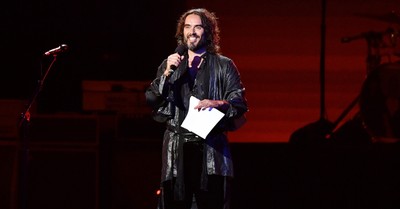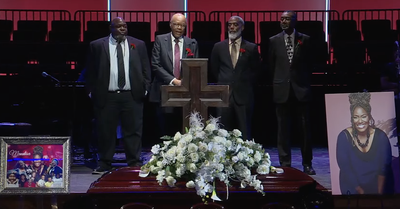July 15, 2008
WASHINGTON (BP) -- The prosecutor for the International Criminal Court requested an arrest warrant July 14 for the president of Sudan's militant Islamic regime, charging him with genocidal acts in Darfur.
In presenting his case, the prosecutor, Luis Moreno-Ocampo of Argentina, charged Omar Hassan al-Bashir with genocide, crimes against humanity and war crimes. During the last five years, al-Bashier oversaw and promoted a campaign substantially focused on destroying the Fur, Masalit and Zaghawa ethnic groups in Darfur, according to Moreno-Ocampo's evidence.
Darfur, in the western region of Sudan, has been the scene of a grave humanitarian crisis since 2003, when government-sponsored militias, known as Janjaweed, began what President Bush has described as "genocide" in response to rebel attacks on government bases.
The crisis in Darfur is based on ethnic differences, with the Arab Muslim militias raping, kidnapping, bombing and murdering African Muslims. It has been estimated more than 400,000 people have died and nearly 2.5 million have been displaced in refugee camps in the area.
Speaking of al-Bashir, the prosecutor said in a written release from the International Criminal Court (ICC), "He used the whole state apparatus, he used the army, he enrolled the Militia/Janjaweed. They all report to him, they all obey him. His control is absolute.
"His motives were largely political. His alibi was a 'counterinsurgency.' His intent was genocide," Moreno-Ocampo said. "In the camps al-Bashir's forces kill the men and rape the women. He wants to end the history of the Fur, Masalit and Zaghawa people. I don't have the luxury to look away."
ICC judges will review the prosecutor's charges against al-Bashir to decide if there are "reasonable grounds" to believe he committed such crimes and to determine the means of a court appearance by him.
Sudan's regime quickly denied the charges. "We will resist this," said Rabie Atti, a Sudanese spokesman, according to The New York Times. "Everybody in Sudan –- the government, the people, even the opposition parties -– are against this."
The United States is not a member of the ICC, which consists of 106 countries and was formally established in 2002. The Bush administration has opposed ICC membership because of concerns about its impact on U.S. sovereignty.
A Southern Baptist public policy leader applauded Moreno-Ocampo's action.
"While I have concerns about the jurisdictional authority of the International Criminal Court, I certainly commend the prosecutor for his determination to hold President al-Bashir accountable for his shameful role in the ongoing tragedy of Darfur," said Barrett Duke, the Ethics & Religious Liberty Commission's vice president for public policy and research. "While President al-Bashir promises many things to resolve this horrific situation, he follows through on practically none of them.
"With every passing day the suffering of the people in Darfur increases," Duke said. "It is past time for President al-Bashir and his regime to feel the full force of outrage that exists in most of the rest of the world over the atrocities committed under his rule."
Messengers to the 2006 Southern Baptist Convention (SBC) approved a resolution describing the conflict in Darfur as "genocide" and urging the disbanding of the government-supported militias in Darfur, international trials for "perpetrators of the atrocities" in the region and multi-national aid to the area.
Messengers to the 2000 and 2001 SBC meetings adopted resolutions calling for the Bush administration and Congress to pressure the Sudanese regime to halt the "atrocities and ongoing violations of religious freedom" that marked another genocidal effort in the east African country.
That earlier conflict was largely between the north and south, stretching over more than 20 years before ending ostensibly in 2005. That strife was based on religious differences, with the militant Islamic forces backed by the government pillaging Christian, animist and moderate Muslim villages in the central and southern parts of the country.
The U.S. State Department has designated Sudan as one of its eight "countries of particular concern," a category reserved for the world's worst violators of religious liberty.
The ICC is located at The Hague, The Netherlands.
Tom Strode is Washington bureau chief of Baptist Press.
Copyright 2008 Baptist Press










